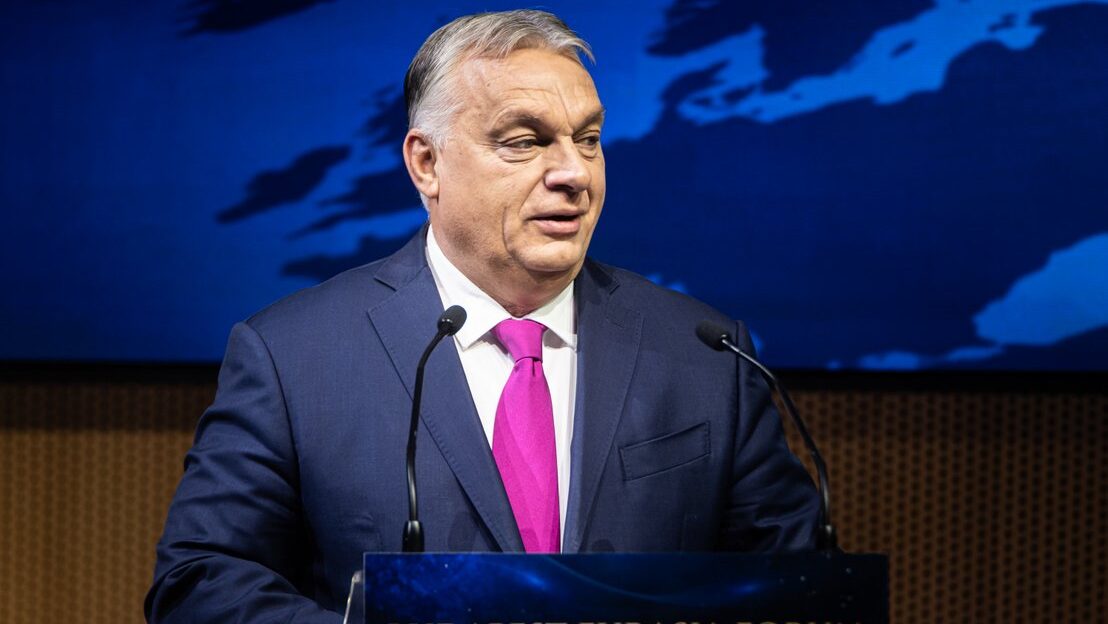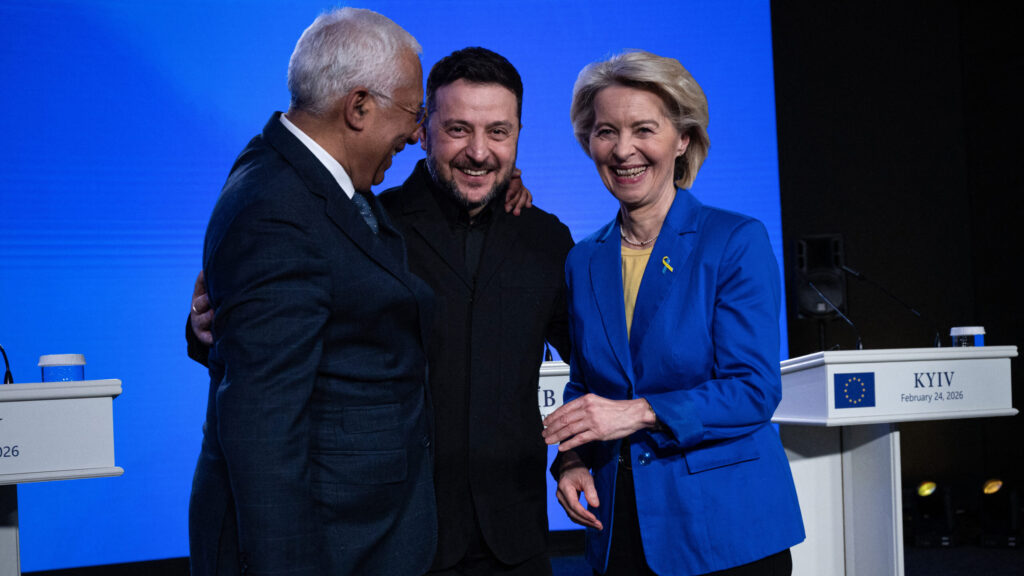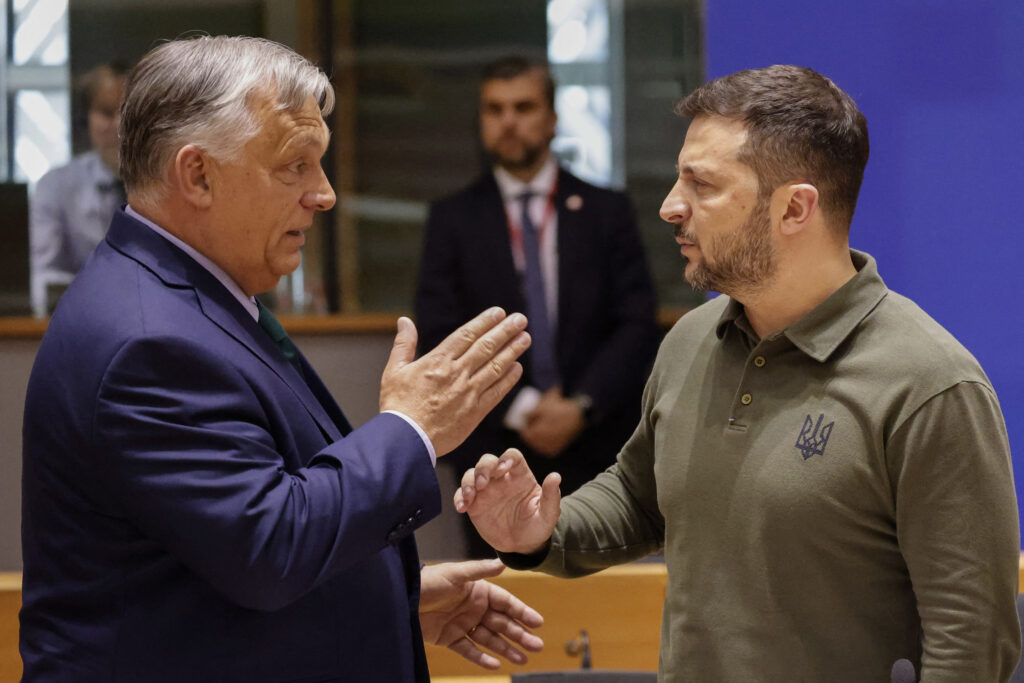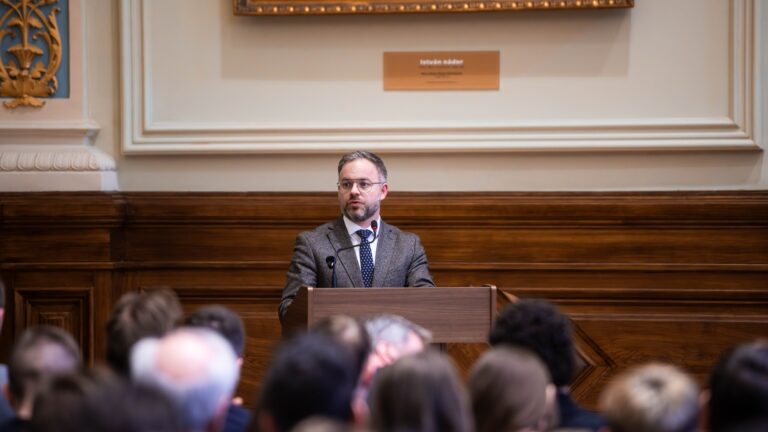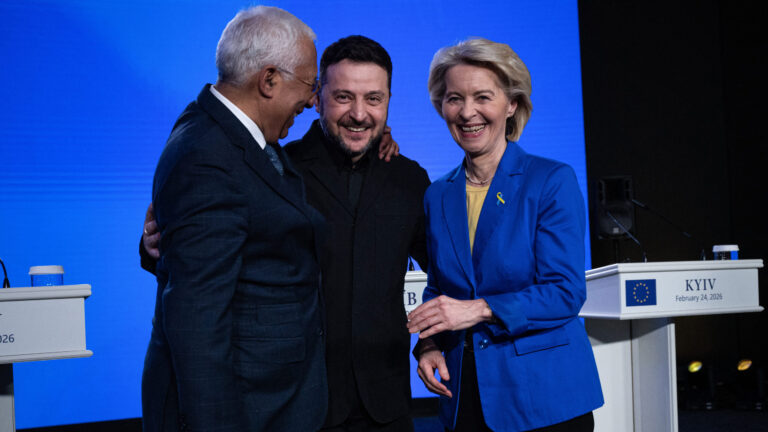The Eurasia Forum, organized by the Central Bank of Hungary, is taking place in Budapest on 21–22 November. The conference has brought together prominent business leaders, political thinkers, and policymakers to discuss the future of European-Asian cooperation. Hungarian Prime Minister Viktor Orbán delivered a speech at the opening ceremony, during which he emphasized that we are not witnessing a reordering of the world order but rather a reintegration.
PM Orbán stated that the period following the regime change in Hungary was characterized by the belief that looking to the West was worthwhile not only because of the higher standard of living but also due to the development of a self-correcting political and economic system, discovered in the 17th century, which ensures long-term strategic security.
He noted that this belief was reinforced during the 2008–2009 financial crisis, which revealed that the crisis was ‘essentially the logical consequence of a profound transformation of the global economy.’ This shift, he explained, is radically reshaping previously established geopolitical relations and elevating new centres of power, particularly in Asia, thereby creating a new paradigm where modernity is no longer an exclusively Western concept.
This realization, he recalled, prompted Hungary’s political leadership to turn its attention toward the East, alongside its focus on Western Europe, and sometimes even in place of it.
Sharp, Quick, Intelligent
Orbán remarked that change occurs rapidly, and the essence of politics lies in understanding and maintaining the right pace. A government, he explained, can gather all the knowledge in the world—it is accessible, can be acquired, and even purchased. However, politics, he continued, is not primarily a domain of knowledge but one of application, where the key to success is timing.
‘You not only have to implement the right measures, but you must do so at the right moment. The smaller the country, the more critical this becomes. For a country the size of Hungary, a mismatch in pace can be fatal,’ he stated.
The prime minister observed that Hungary’s history over the past 150 years often reveals instances of missed opportunities and a lack of proper timing. As an example, he pointed to the poorly timed attempt to withdraw from the Second World War, which left Hungary at a severe and lasting disadvantage for the next 60 to 70 years compared to competitors with a better sense of timing.
‘For a country the size of Hungary, a mismatch in pace can be fatal’
He concluded that a country the size of Hungary cannot afford to be slow, unimaginative, or reliant on the interpretations and understanding of others. ‘A country of Hungary’s size, if it wants to meet the standards we aspire to and honour the traditions of our thousand-year history, must be sharp, quick, intelligent, outward-looking, and always forward-thinking, ensuring it never misses the right moment to make critical decisions,’ he stated.
PM Orbán stated that, although Hungary is a member of the European Union, it lacks the advantages enjoyed by the larger European countries, which allow them to move forward with greater caution. These advantages include significant weight, size, economic importance, GDP volume, the number of soldiers, and the immense power of military technology.
Renaissance of Eurasia
He also noted that there are no natural geographical borders between Europe and Asia, and this natural geographical unity—supported by the lessons of economic history—has demonstrated a complementary economic unity. In this region, the most prosperous centres of human civilization, culture, and economy historically coexisted.
Orbán explained that the existence of Eurasia as a natural economic unit has been hindered over the past centuries by three factors:
- The first is the shift in the centre of gravity of world trade towards the seas, which resulted in an entirely different orientation;
- The second factor is that this reordering led to the dominant status of Western civilization, disrupting the balance between civilisations within the Eurasian region and shifting it decisively in favour of the West;
- The third obstacle—one specific to the modern era—is that after the Cold War, the Western elite chose not to restore the organic unity of Eurasia but instead sought to westernise the entire world, he said. He pointed to the Arab Spring as the most striking example of this strategy and its most evident failure.
The prime minister stressed that there is a growing sense that this way of thinking—this Western strategy, including Europe’s approach—is ‘invalid, unsuccessful, and has reached its conclusion.’ He argued that the era of ‘liberal, progressive dominance’ within the Western world has come to an end. The notion that the entire world must be organised according to Western principles has failed, along with the assumption that those selected to implement this order would willingly do so in exchange for economic and financial incentives.
In his view, the states of Asia have grown stronger, demonstrating their ability to rise, thrive, and endure as an independent economic and political powerhouse. Consequently, the centre of the global economy has shifted eastward, with eastern economies growing at four times the rate of their western counterparts. Additionally, while the value added by western industry accounts for 40 per cent of the global total, eastern industry now contributes 50 per cent.
He pointed out another emerging development: the Western world appears to be ‘out of breath’ within its own sphere. ‘Issues have arisen that liberal, progressive-dominated thinking has failed to address,’ he said, citing migration, gender ideology, ethnic divisions, and the Russo–Ukrainian war as examples.
‘The states of Asia have grown stronger, demonstrating their ability to rise, thrive, and endure as an independent economic and political powerhouse’
Highlighting the key arguments underpinning the Hungarian government’s perspective on the renaissance of Eurasia, the prime minister noted that Eurasia is the largest contiguous landmass on the planet, a permanent feature in global politics and trade, and home to multiple civilisations, which he described as a significant competitive advantage. ‘This region is home to 70 per cent of the global population, and Asia accounts for 70 per cent of the world economy,’ he stated.
Europe Lost in Transformation
Orbán stated that Europe has become the primary loser in the global transformations currently underway. He noted that, in terms of purchasing power parity, the European Union would rank as the third poorest state if it were part of the United States. Additionally, there is no longer a European economy among the world’s five largest, and European innovation has effectively ‘evaporated.’
He argued that if the next century is indeed to be the century of Eurasia, it is striking that Europe struggles to find its place within this intellectual framework. According to him, some Western leaders fail to recognize the significance of Eurasia, while others ‘acknowledge it but are unwilling to embrace it.’
The prime minister stressed that the European elite is focused on defending the status quo of its former glory, a mindset that is driving the formation of trade, economic, and political blocs. He argued that if Europe fails to break out of this defensive stance and transition from forming blocs to a mindset centred on connectivity, the continent’s decline in the face of ongoing global changes will become a long-term trend.
‘Europe must break out of this echo chamber, find its place in its relationship with Asia, and recognize that it is part of the Eurasian region. It must leverage all the advantages this position offers, because without doing so, we cannot compete with other global power centres,’ PM Orbán said.
He stated that while a strong European strategy would be desirable, Europe is unlikely to develop one. Therefore, Hungary cannot afford to wait for Europe to create a strategy that includes its interests, as the windows of opportunity for making crucial decisions are rapidly closing. ‘The period ahead of us will be the century of Eurasia, and our position within it must be determined by us, not derived from a European strategy,’ he said.
Hungary’s Strategy
Hungary, he continued, already has such a strategy in place, which it is pursuing through a deliberate national policy and economic strategy. While Hungary’s location in Eurasia is a decisive element of this approach, it is not the sole focus.
He explained that Hungary’s ongoing disputes with Brussels stem from its independent strategy, which is rooted in new realities, acknowledges current circumstances, and defines Hungary’s place based on its own priorities, regardless of Brussels’ prevailing doctrine.
Orbán clarified that Hungary’s independent strategy does not alter the fact that it remains a member of NATO and must also define its relationship with the United States. He expressed hope that establishing relations with the new US administration would be smoother than it was with the previous one, adding, ‘which is not a particularly high expectation, as the relationship with the old administration was far from successful.’
‘The period ahead of us will be the century of Eurasia’
He stated that Hungary maintains trade relations with all partners, noting that over the past decade, the value of Hungarian exports has doubled. This includes a simultaneous doubling of exports to both Western and Eastern markets. He also highlighted Hungary’s success in diversifying its investment policies and energy procurement strategies.
PM Orbán pointed out that by 2025, the country will undertake investments of globally significant scale, which will demonstrate the effectiveness of its strategy. He added that the upcoming budget bill includes provisions for launching 300 government-backed investment projects next year.
Orbán observed that few countries in Europe today would host a conference like this, and it is even less likely that a prime minister would address the topic of Eurasia in such a context. He stressed: ‘We are the living idea of Eurasia. We are the embodiment, the reincarnation of this word, because we are a people from Asia.’ He elaborated that while the Hungarians originated in Asia, they have since become a thoroughly Western, European people.
The prime minister expressed his conviction that Hungary is on a positive trajectory. He argued that if we are on the threshold of an era ‘that we ourselves are almost the expressers and formulators of,’ then it is reasonable to believe that the world economy and the European economy are entering a prosperous phase, offering Hungary a historic opportunity for development.
You can watch the full opening ceremony here:
Budapest Eurasia Forum 2024 - Opening ceremony
The Budapest Eurasia Forum 2024 is the fifth conference of the Budapest Eurasia Forum event series, which was initiated by the Magyar Nemzeti Bank (MNB), the central bank of Hungary. 2024 however marks not only the fifth edition of the event series, but also the 100th anniversary of the establishment of the Magyar Nemzeti Bank.
Related articles:

